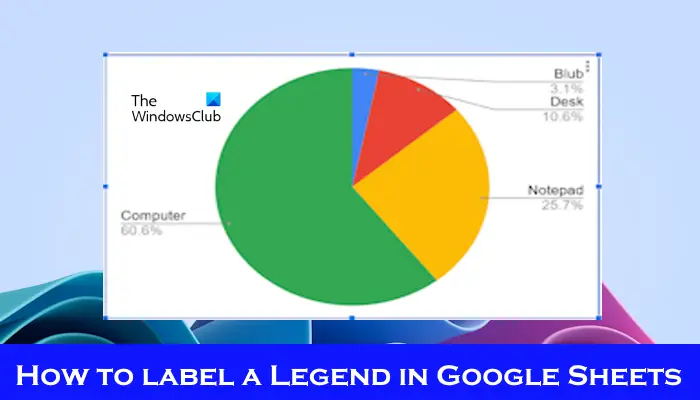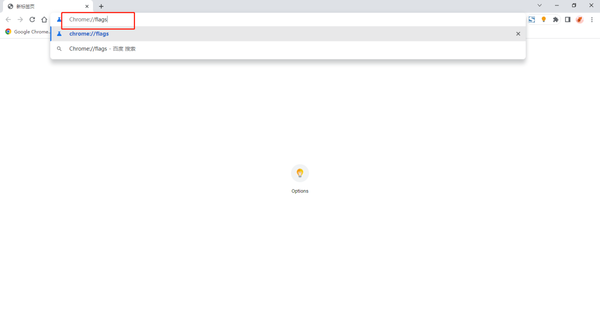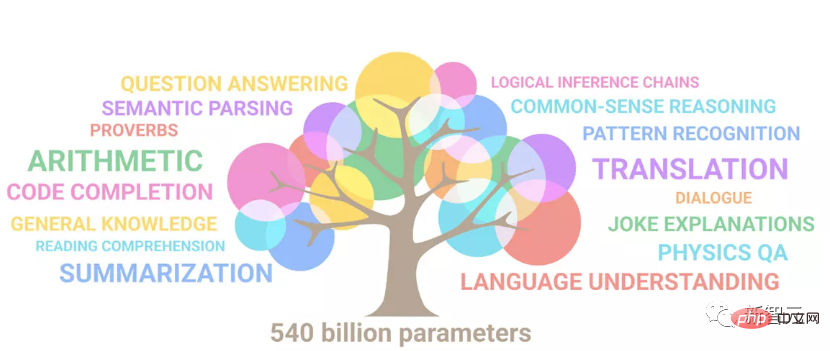 web3.0
web3.0 Woman Sues Google for $5 Million After Fraudulent Crypto Wallet App Scammed Her Out of $4.6 Million
Woman Sues Google for $5 Million After Fraudulent Crypto Wallet App Scammed Her Out of $4.6 MillionConsumers are increasingly interacting with crypto assets using all sorts of platforms. Digital assets have become some of the most sought-after investment vehicles

A Florida woman is suing Google after she lost millions of dollars to a fraudulent crypto wallet app that she downloaded from the Google Play Store.
According to the lawsuit, filed in a California court on Friday, Maria Vaca began investing in cryptocurrency between February and July 2023. During that time, she downloaded the Yobit Pro app from the Play Store.
Vaca alleges that she deposited $4.6 million into the Yobit Pro app, and it told her that her investments were doing well, netting her $7 million. However, when she tried to withdraw some of the money, the app told her that she had to deposit another $500,000.
The app claimed that this money was to cover taxes related to her investments, and Vaca went ahead and deposited it. But when the app asked her for another $2 million, she began to get suspicious.
Vaca didn't put any more money on the app, but this didn't stop the issue. Instead, she began receiving threats to her life via WhatsApp.
She turned to the Consumer Financial Protection Bureau (CFPB), which then informed Google about the scammy app. But the suit says that Google was very slow to do anything about the issue.
In fact, the Yobit Pro app stayed on the Play Store for another three months despite the information it received. It turns out that Vaca was not the only one with this experience, as Yobit Pro had been downloaded by over 12,000 people.
Five of these people have reported also having their money stolen, which shows just how far-reaching the issue is. Vaca is seeking $5 million in damages from Google and is accusing the company of "material misrepresentations and other deceptive conduct."
She has also said that the whole ordeal led to the collapse of her real estate business and damaged her mental health.
This incident is a rather tricky one because, as the lawsuit points out, Vaca and others trusted the app because it was on the Google Play Store, meaning it had been vetted by the company.
The Play Store is one of the biggest app platforms in the world, and users might naturally assume that Google has a responsibility to keep them safe.
Google, on its part, has taken some action to combat the issue of fraudulent apps. Earlier this year, it sued two developers who had developed 87 fraudulent apps.
These apps scammed a total of 100,000 users and included a number of crypto apps. Similar to Yobit Pro's strategy, users were drawn in by the promise of making massive profits but once they deposited their money, they weren't able to get it out.
Any industry that is financially viable will have to deal with scammers, but cryptocurrency is especially tricky to navigate. Crypto transactions, because they are decentralized, are very difficult to track and they cannot be reversed.
So when someone is scammed of their crypto assets or through a crypto investment scheme, it is harder for them to get justice. This is why crypto investors are always told to only invest with verified platforms.
In Vaca's case, an app approved for listing on the Google Play Store is perhaps as verified as it gets, but she still got scammed.
Google hasn't responded to the suit just yet, but its outcome will set a precedent for both it and other firms moving forward. It might prompt Google to be more proactive about removing scam apps lest it loses the confidence of some of its users.
For crypto investors, it is yet another cautionary tale of avoiding scammers.
The above is the detailed content of Woman Sues Google for $5 Million After Fraudulent Crypto Wallet App Scammed Her Out of $4.6 Million. For more information, please follow other related articles on the PHP Chinese website!
 如何在Google Sheet中为图例添加标签Feb 19, 2024 am 11:03 AM
如何在Google Sheet中为图例添加标签Feb 19, 2024 am 11:03 AM本文将演示如何在GoogleSheet中为图例添加标签,这些标签侧重于单个事物,提供名称或标识。图例解释了事物的系统或组,为您提供相关的上下文信息。如何在GoogleSheet中为图例添加标签有时候,在使用图表时,我们想要让图表更易于理解。通过添加恰当的标签和图例,可以实现这一目的。接下来,我们将介绍如何在Google表格中为图例添加标签,让您的数据更加清晰明了。创建图表编辑图例标签的文本我们开始吧。1]创建图表要标记图例,首先,我们必须创建一个图表:首先,在GoogleSheets的列或行中输
 Google Pixel 9 and Pixel 9 Pro rumoured to gain Creative Assistant AI upon releaseJun 22, 2024 am 10:50 AM
Google Pixel 9 and Pixel 9 Pro rumoured to gain Creative Assistant AI upon releaseJun 22, 2024 am 10:50 AMCurrently, four new Pixel smartphones are anticipated to land this autumn. To recap, the series is rumoured to feature thePixel 9 and Pixel 9 Pro at launch. However, the Pixel 9 Pro will be a rival to the iPhone 16 Pro rather than a Pixel 8 Pro (curr
 优化谷歌浏览器下载速度的技巧与方法Dec 27, 2023 pm 03:42 PM
优化谷歌浏览器下载速度的技巧与方法Dec 27, 2023 pm 03:42 PM在现代社会中,网络已经成为我们获取信息、分享资源和进行日常活动的主要方式。其中,文件下载是我们经常需要进行的操作之一,无论是从个人电脑到移动设备,还是从互联网服务器到本地存储设备。然而,快速稳定的文件下载可能会受到许多因素的影响,包括网络连接速度、服务器响应时间、浏览器性能等。今天,我们将重点讨论如何通过优化谷歌浏览器来提高文件下载速度。谷歌浏览器无法启动更新检查的解决方法1、打开谷歌浏览器,在地址栏输入【Chrome://flags】后按回车,进入到Chrome的实验功能中。 2、在搜索栏中搜
 Google AI announces Gemini 1.5 Pro and Gemma 2 for developersJul 01, 2024 am 07:22 AM
Google AI announces Gemini 1.5 Pro and Gemma 2 for developersJul 01, 2024 am 07:22 AMGoogle AI has started to provide developers with access to extended context windows and cost-saving features, starting with the Gemini 1.5 Pro large language model (LLM). Previously available through a waitlist, the full 2 million token context windo
 Google app beta APK teardown reveals new extensions coming to Gemini AI assistantJul 30, 2024 pm 01:06 PM
Google app beta APK teardown reveals new extensions coming to Gemini AI assistantJul 30, 2024 pm 01:06 PMGoogle's AI assistant, Gemini, is set to become even more capable, if the APK teardown of the latest update (v15.29.34.29 beta) is to be considered. The tech behemoth's new AI assistant could reportedly get several new extensions. These extensions wi
 顺手训了一个史上超大ViT?Google升级视觉语言模型PaLI:支持100+种语言Apr 12, 2023 am 09:31 AM
顺手训了一个史上超大ViT?Google升级视觉语言模型PaLI:支持100+种语言Apr 12, 2023 am 09:31 AM近几年自然语言处理的进展很大程度上都来自于大规模语言模型,每次发布的新模型都将参数量、训练数据量推向新高,同时也会对现有基准排行进行一次屠榜!比如今年4月,Google发布5400亿参数的语言模型PaLM(Pathways Language Model)在语言和推理类的一系列测评中成功超越人类,尤其是在few-shot小样本学习场景下的优异性能,也让PaLM被认为是下一代语言模型的发展方向。同理,视觉语言模型其实也是大力出奇迹,可以通过提升模型的规模来提升性能。当然了,如果只是多任务的视觉语言模
 悄无声息,Google已禁止Colab上的Deepfake项目Apr 08, 2023 pm 07:11 PM
悄无声息,Google已禁止Colab上的Deepfake项目Apr 08, 2023 pm 07:11 PM有消息显示,Google已于近日悄悄禁止了其在 Colaboratory(Colab)服务上的深度伪造(Deepfake)项目,这代表以Deepfake为目的大规模利用平台资源的时代或已画上句号。众所周知,Colab是一个在线计算资源平台,允许研究人员直接通过浏览器运行Python代码,同时使用包括GPU在内的免费计算资源来支持自己的项目。正由于GPU的多核特性,Colab是类似Deepfake模型机器学习项目或执行数据分析理想选择。经过一定训练,人们将Deepfake技术用于在视频片段中交换面
 如何在 Ubuntu 上安装 Google 字体 22.04 LTSFeb 19, 2024 pm 11:18 PM
如何在 Ubuntu 上安装 Google 字体 22.04 LTSFeb 19, 2024 pm 11:18 PM使用Google字体能够显著增强数字内容的视觉吸引力。透过精心挑选的字体,您可以为信息设定特定的氛围,提升文本的易读性,为观众带来更具吸引力的阅读体验。通过GoogleFonts,您可以轻松地探索各种字体风格,找到与您的设计理念完美契合的字体。在Ubuntu上安装GoogleFonts22.04LTSJammyJellyfish在开始安装之前,请务必确保您的Ubuntu22.04系统是最新的。保持系统更新不仅可确保您拥有最新功能和安全补丁,还有助于避免新软件安装时可能出现的兼容性问题。sudoa

Hot AI Tools

Undresser.AI Undress
AI-powered app for creating realistic nude photos

AI Clothes Remover
Online AI tool for removing clothes from photos.

Undress AI Tool
Undress images for free

Clothoff.io
AI clothes remover

AI Hentai Generator
Generate AI Hentai for free.

Hot Article

Hot Tools

PhpStorm Mac version
The latest (2018.2.1) professional PHP integrated development tool

Dreamweaver Mac version
Visual web development tools

SecLists
SecLists is the ultimate security tester's companion. It is a collection of various types of lists that are frequently used during security assessments, all in one place. SecLists helps make security testing more efficient and productive by conveniently providing all the lists a security tester might need. List types include usernames, passwords, URLs, fuzzing payloads, sensitive data patterns, web shells, and more. The tester can simply pull this repository onto a new test machine and he will have access to every type of list he needs.

DVWA
Damn Vulnerable Web App (DVWA) is a PHP/MySQL web application that is very vulnerable. Its main goals are to be an aid for security professionals to test their skills and tools in a legal environment, to help web developers better understand the process of securing web applications, and to help teachers/students teach/learn in a classroom environment Web application security. The goal of DVWA is to practice some of the most common web vulnerabilities through a simple and straightforward interface, with varying degrees of difficulty. Please note that this software

MinGW - Minimalist GNU for Windows
This project is in the process of being migrated to osdn.net/projects/mingw, you can continue to follow us there. MinGW: A native Windows port of the GNU Compiler Collection (GCC), freely distributable import libraries and header files for building native Windows applications; includes extensions to the MSVC runtime to support C99 functionality. All MinGW software can run on 64-bit Windows platforms.





